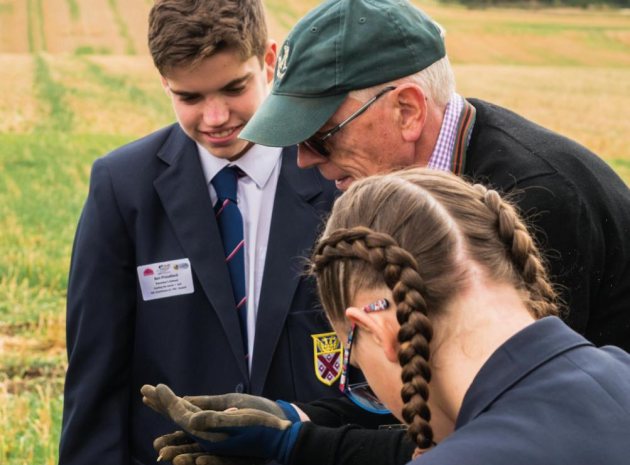Imagine a world in which the only concrete experience is literally a concrete experience – where people grow up in an urban environment with no experience of gardens, farmland or wild areas. For some young people, especially those living in urban poverty, this is reality. Every member of society surely deserves the opportunity to spend time in the natural world? Indeed, this simple (and minimal) expectation is now enshrined in government legislation, which ensures that every child has at least one residential experience in their school years. Why is it, then, that outdoor learning opportunities so often stop at the end of KS2?
Joined-up learning
I have always been fascinated with the experience of teaching and learning. As a former secondary school geography teacher, I knew that the goal of every lesson wasn’t simply to get my students to absorb facts; both learners and teachers need to be somehow changed by the experience. And experiences outside the classroom were the most transformative.
I saw even the most reluctant of learners become motivated and capable in an outdoor setting; I witnessed students become more connected, while developing values and opinions informed by first-hand experiences. It was as if my students came alive. In many ways, being outdoors, away from classroom confines, awakened potential, developed social and physical skills and boosted confidence. Added to this, research is clear that being outdoors can lead to improved mental health and wellbeing, as well as help develop a sense of shared responsibility in helping protect the natural world. Outdoor learning really does matter.
I too become a different teacher when I stepped outside the classroom – more relaxed, more open, relating to my students in a different way – our learning felt more ‘joined up’.
From theory to action
At LEAF Education, our work centres around connecting young people with the outdoor world through farming and food production. We work with farmers, teachers and students to provide inspirational outdoor learning experiences – highlighting opportunities available to them, both academic and skill-based; opening their eyes to future career routes; and promoting health and wellbeing.
We are seeing a growing number of young people being removed from the outdoor world, yet at the same time, there is an increase in that same demographic becoming more active via social media around food issues and fitting into social groups related to health and wellbeing, fitness and nutrition, veganism and flexitarianism. Today’s teenagers are the consumers and decision makers of tomorrow. They need to be given a voice in defining how their food and farming industry can become more relevant to them – whether that be through addressing sustainability issues, concerns around health and wellbeing, protecting the environment or future career opportunities. Our young people are ever more passionate, caring and informed in the theory, but the opportunity to express the informed reality is still lacking.
A new road-map
I’ve seen with my own eyes the changes that can occur in a short space of time, and truly believe that outdoor learning experiences are invaluable in the lives of young teenagers. They teach the skills of working together as a group, of problemsolving in practical ways, of leadership, appreciating the great outdoors, learning organisation and time-management, gaining independence, and developing persistence. Such lessons should not be under-valued within our education system. A truly collaborative approach is needed between teachers, students, parents, communities and educationalists to develop a new road-map for teenager engagement in the outdoor world.
About the author
Carl Edwards is director at LEAF Education, which works across the education, farming and food sectors. Find out more at education.leafuk.org








